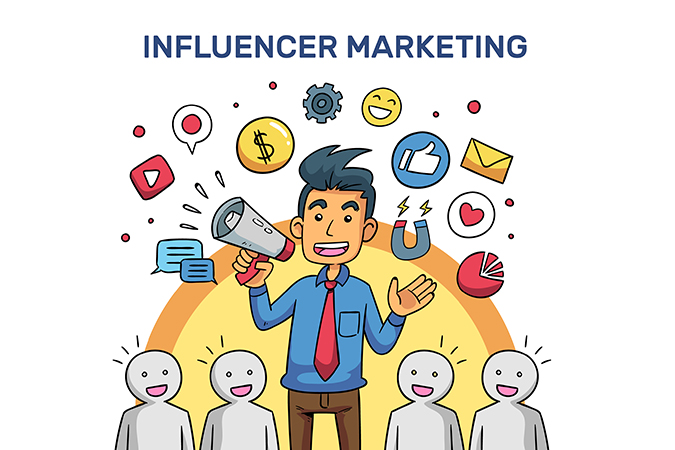In the digital age, the landscape of marketing and media has undergone a seismic shift, with traditional advertising methods giving way to a more nuanced and interactive approach. At the forefront of this transformation is the rise of influencer marketing, a strategy that leverages the power of social media personalities to promote products, services, and brands. The Influencer Effect is not just about endorsements; it’s about building communities, fostering trust, and creating authentic connections with consumers. This article delves into how influencers are changing the game in marketing and media, and why brands are increasingly turning to them to reach their target audiences.
The Evolution of Influencer Marketing:
Influencer marketing has evolved from a niche tactic to a mainstream strategy, with its roots tracing back to celebrity endorsements. However, the advent of social media platforms like Instagram, YouTube, TikTok, and Twitter has democratized influence, allowing individuals with specialized knowledge or unique personalities to amass followings in the millions. These digital influencers, or content creators, have become tastemakers in their niches, whether it’s fashion, beauty, fitness, technology, or travel.
Authenticity and Trust:
One of the key reasons for the Influencer Effect’s potency is the authenticity that influencers bring to their content. Unlike traditional celebrities, influencers often share their daily lives with their followers, creating a sense of intimacy and relatability. This authenticity translates into trust, a commodity that is increasingly hard to earn in a world saturated with advertising. When influencers recommend a product or service, their followers are more likely to trust that recommendation, leading to higher engagement rates and conversion rates for brands.
Niche Targeting and Engagement:
Influencers specialize in specific niches, allowing brands to target highly specific demographics. This precision targeting is invaluable for brands looking to reach particular segments of the population with tailored messages. Moreover, influencers often have highly engaged communities, meaning that the content they share receives significant interaction in the form of likes, comments, and shares. This engagement is a goldmine for brands, as it provides them with invaluable insights into consumer behavior and preferences.
Content Creation and Storytelling:
Influencers are adept at creating compelling content that resonates with their audience. They understand the importance of storytelling and can weave brand narratives into their personal stories in a way that feels natural and engaging. This ability to tell stories through the lens of their personal brand is a powerful tool for brands looking to communicate their values and mission in a more humanized way.
The Role of Influencers in Media:
Influencers are not just changing the face of marketing; they are also reshaping the media landscape. Many influencers have become media personalities in their own right, hosting shows, producing content series, and even launching their own digital media platforms. This shift has led to a more diverse range of voices and perspectives in media, challenging traditional gatekeepers and democratizing content creation.
Challenges and Considerations:
Despite its effectiveness, influencer marketing is not without its challenges. Brands must navigate the complexities of influencer partnerships, including negotiating contracts, ensuring brand safety, and measuring ROI. Additionally, the rise of influencer marketing has led to concerns about authenticity, with some influencers prioritizing sponsored content over genuine engagement. Brands must be vigilant in selecting partners who align with their values and maintain transparency with their audience.
Conclusion:
The Influencer Effect is a testament to the changing dynamics of consumer behavior and the power of personal narratives in marketing and media. By leveraging the trust, engagement, and storytelling prowess of influencers, brands can create more meaningful connections with their audience. As the digital landscape continues to evolve, the role of influencers in shaping consumer opinions and driving cultural trends will only grow, making influencer marketing a cornerstone of modern marketing and media strategies.
